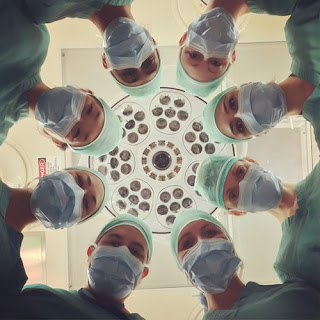Certified Nurse Anesthetist (Crna) - 3 Steps TO Jump Start A Nursing Career
Some nurses are paid more than doctors, it is true. CRNAs (certified nurse
anesthetists) have a reputation of making a lot.
You might be wondering what a CRNA actually is and how you can become one. CRNAs are nurses who provide anesthesia for surgery and other procedures. Because patients' lives are in their hands, CRNAs have Anesthesia Services extensive training. However, this doesn't make it impossible to achieve this career. In fact, it's quite possible. It is possible to train as a CRNA and work in nursing. Nurses have many options.
Step 1:
Become a Licensed Practical Nurse (LPN).
You can jumpstart your nursing career by enrolling in
a state-approved nursing program. A
licensed practical nurse (also known as a licensed vocational nurse) can be
your next step in your nursing career. These
programs are often offered by community and junior colleges. These programs usually take about a year to complete. To obtain your license, you'll need to pass the National
Council Licensure Examination -PN after you have completed the program. After completing the program, registered nurses or doctors
will be able care for patients in many settings. If you prefer to skip Step 1, you can go straight for your
Bachelor’s degree and jump right to Step 2.
Step 2:
Earn your BSN to be a RN
A Bachelor's of Science (BSN) can be completed while
working as a LPN. Two ways you can advance
your career are possible. First,
registered nurses are more responsible and earn more than LPNs and LVNs. A BSN is required and you should have at least one year
experience as a registered nurse assistant to become a CRNA.
Step 3:
Becoming a CRNA
After you have completed your BSN, and worked as an RN
for no less than one year, you can choose to pursue a Master’s degree in
Nursing (MSN). You can become an advanced
practitioner nurse (APN) with a Master's Degree in Nursing. This includes nurse
midwives, nurse practitioners and clinical nurses specialists. Nurse
anesthetists, nurse practitioners and nurse practitioners.
An accredited program for nurse anesthesia will provide
you with a comprehensive education in anatomy, pathophysiology, physiology,
chemistry, pharmacology and physiology. Learn about the various types of surgery and obstetrics, and
how they are used. These programs
typically take between 24 to 36 months. You
will receive a Master's in Nursing after you have completed the program. After passing the national certification exam, you are
eligible to become a CRNA.
https://somniaanesthesiaservices.doodlekit.com/blog/entry/18966510/best-pain-management-techniques




Comments
Post a Comment